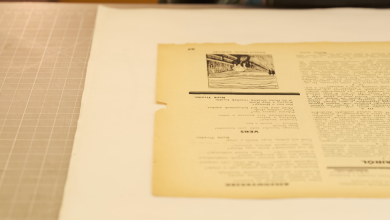Are Better Things Coming? Inshallah

When I wasgrowing up, my family used the expression “inshallah” a lot. For Muslims, the term — which translates to “If God wills” — is auspicious: If you want something to happen, you should say inshallah before you say anything else about it. The Quran says as much in its 18th chapter, Surah Al-Kahf. “And never say of anything, ‘Indeed, I will do that tomorrow,’ except [when adding], ‘If Allah wills.’”
Despite not speaking Arabic (as Sri Lankan immigrants, my parents spoke Tamil), my family prefaced many sentences with inshallah. We attached it to everything from the grandiose (“Inshallah, I will live in a big house one day”) to the mundane (“Inshallah, I will get paid tomorrow”). Whenever my mother wanted me to clean my room or vacuum the carpet, I tried to procrastinate by telling her I’d do it later. She’d tell me to add inshallah to the end of my promises: “If you don’t say inshallah, it won’t get done.”
But inshallah’s meaning is unstable. These days, this pious sense of optimism might be overshadowed by a more popular use. Inshallah has come to take on a somewhat cynical edge, invoked to appease others or change the subject — when someone is invited to a wedding he or she has no plans of attending, the person might say, “Inshallah, we will try” — or even to send a sarcastic signal of disbelief. This last use has sometimes found its way into non-Muslim mouths: Unaware, perhaps, of its religious significance, President Biden used the expression in reference to Bernie Sanders’s Medicare for All plan, and again while debating Donald Trump in 2020. When Trump suggested he would release his tax returns, Biden responded with a breathless “When? Inshallah?”
Contrary to these more cynical invocations, inshallah’s religious context has always registered an element of hope. This concept isn’t unique to Islam. Browsing Twitter, I regularly find people “manifesting” and putting hopes “out into the universe.” Whether or not you are religious, there is comfort in the idea of a higher power, a force beyond the mundane that organizes and intercedes in your life as it unfolds. But practices like manifesting depend on an unrelentingly positive worldview that focuses on people achieving their material ambitions. Inshallah requires us to embrace the possibility that we might not realize our hopes, that what we can envision for our lives is paltry in comparison with that which God plans. The benefits of this realization may not be evident for years after it arises, and those benefits might not be material. Understanding inshallah requires humble patience as God’s will unfurls. It demands a suspension of the ego in the face of cosmic forces and provides a little order to what can be a chaotic life — knowing that you are on the path you are supposed to be on, whether or not it’s what you expected.
A few years ago, I began to use the expression with my non-Muslim friends, who themselves began to use it in conversation independent of me. The beauty of inshallah is that it’s used in community, to comfort, console and celebrate others. It is the lingua franca of Muslims around the world, providing a common link among disparate languages and cultures. But whatever language you speak, the sentiment is always the same: Better things are coming, for you, for me, for everyone — even if we can’t conceive of what those better things might be.
As a child, I couldn’t appreciate what this phrase meant when it was used so regularly. I certainly believed in God, but more as an object of worship, the target of my prayers. At the time, I didn’t grasp the concept of humility that is required of a believer — accepting that the fate of our lives is ultimately decided by God. In college, I would use the phrase mainly before discussing my goals, especially when I was applying to medical school. “Inshallah, I want to go to become a doctor.” Three unsuccessful application cycles later, I was forced to confront the fact that God’s will and my own didn’t always line up. Using inshallah to preface your hopes and dreams may be imbued with the prospect of hope, but that doesn’t mean you get what you want. A true understanding of inshallah requires what Islam calls tawakkaul, or “trust in God” — the idea that you submit to God’s will, whatever that may be.
Lately, amid a plague, climate disaster and democracy in peril, I find myself using inshallah even more in daily speech. It has provided me with solace as it reminds me to put my trust in God and whatever path he has ordained. In a time when some have fallen prey to cults of misinformation, proclaiming their faith in “God rather the vaccine,” such trust can seem naïve.
But having this trust does not preclude us from taking action as individuals. It is said that when the prophet (peace be upon him) witnessed someone leaving his camel untied, he asked him why. The man replied that he trusted in God, to which the prophet replied, “Tie your camel and trust in God.” Using inshallah is a reminder of the delicate balance between agency and faith, a sign that the work to improve ourselves and society goes on even if we can’t be sure of the future — a quiet profession of faith in humanity’s capacity for action in the face of our more cynical impulses.
Abdullah Shihipar is a writer and public-health researcher based at Brown University.



